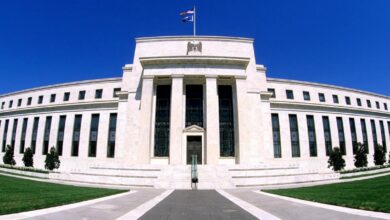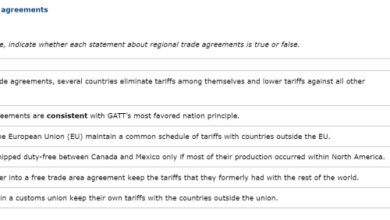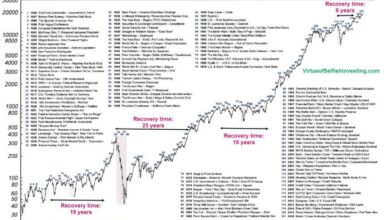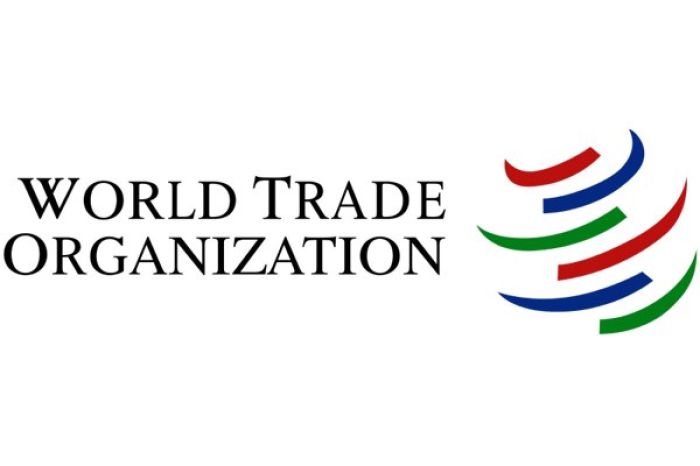
The WTO and Free Trade: Shaping the Global Economy
The WTO and free trade are intertwined forces that shape the global economy, influencing everything from the clothes we wear to the food we eat. The World Trade Organization (WTO) acts as a governing body, setting the rules for international trade and encouraging the reduction of tariffs and trade barriers.
This approach aims to promote free trade, a system where goods and services flow freely across borders without excessive restrictions.
But the impact of free trade is complex. While it can lead to increased economic growth, lower prices, and greater consumer choice, it also raises concerns about job displacement, environmental impacts, and the potential for exploitation of workers in developing countries.
Understanding the relationship between the WTO and free trade is crucial for navigating the challenges and opportunities of a globalized world.
The WTO
The World Trade Organization (WTO) is a global intergovernmental organization that regulates international trade and aims to ensure a smooth, predictable, and rule-based trading system. It is the successor to the General Agreement on Tariffs and Trade (GATT), which was established in 1948.
The WTO has its headquarters in Geneva, Switzerland.
The WTO’s Objectives and Principles
The WTO’s primary objective is to promote free trade among its member countries. This is achieved through a set of rules and commitments that govern international trade. These rules are designed to ensure that trade flows smoothly, predictably, and fairly.
The WTO’s core principles are:
- Non-discrimination: This principle ensures that all WTO members are treated equally, regardless of their level of economic development or political influence. This principle is reflected in the most-favored-nation (MFN) clause, which states that each WTO member must treat all other members equally, and the national treatment principle, which states that imported goods must be treated no less favorably than domestically produced goods.
- Reciprocity: This principle ensures that trade concessions granted by one WTO member are reciprocated by other members. This ensures that all members benefit from the trade liberalization process.
- Transparency: This principle ensures that trade policies are transparent and accessible to all WTO members. This helps to prevent discriminatory or unfair trade practices.
- Free Trade: The WTO seeks to reduce trade barriers, such as tariffs and quotas, to promote free trade.
The WTO’s Role in Regulating International Trade
The WTO plays a crucial role in regulating international trade by:
- Negotiating trade agreements: The WTO provides a forum for its members to negotiate trade agreements that reduce trade barriers and promote free trade.
- Administering trade agreements: The WTO administers the trade agreements that have been negotiated by its members. This includes ensuring that members comply with their commitments and resolving trade disputes.
- Providing a forum for trade discussions: The WTO provides a platform for its members to discuss trade issues and find solutions to common challenges.
- Providing technical assistance: The WTO provides technical assistance to developing countries to help them participate more effectively in the global trading system.
Free Trade
Free trade is a system of international trade where governments do not restrict imports or exports. It is a key principle of economic liberalism and is often associated with increased economic growth, consumer choice, and global prosperity.
Core Principles of Free Trade
Free trade operates on the principle of allowing the free flow of goods and services across national borders with minimal government intervention. This involves reducing or eliminating tariffs, quotas, subsidies, and other trade barriers that hinder international trade.
The WTO and free trade aim to create a level playing field for global commerce, but the complexities of international trade often raise ethical questions. One such issue is the potential for food aid to act as a form of dumping, undermining local markets and hindering sustainable development.
This article delves into the controversial debate surrounding food aid, highlighting its potential negative consequences for local farmers and economies. The WTO’s role in navigating these complex issues is crucial to ensuring that free trade benefits all involved, not just the powerful.
Benefits of Free Trade
Free trade can lead to several benefits for participating countries, including:
- Increased Economic Growth:By removing trade barriers, countries can specialize in producing goods and services where they have a comparative advantage. This leads to increased efficiency, productivity, and economic growth.
- Lower Prices for Consumers:Reduced trade barriers allow consumers to access a wider range of goods and services at lower prices, increasing purchasing power and improving living standards.
- Increased Competition:Free trade encourages competition among businesses, leading to innovation, improved quality, and lower prices. This benefits consumers and promotes efficiency in the economy.
- Job Creation:Free trade can lead to job creation in sectors where a country has a comparative advantage, boosting employment and economic growth.
- Improved International Relations:Free trade can foster cooperation and understanding between countries, promoting peace and stability.
Examples of Successful Free Trade Agreements
Several successful free trade agreements have demonstrated the positive impact of free trade on participating countries.
The WTO and free trade are often touted as engines of global prosperity, but the reality is more complex. While free trade can lead to economic growth, it can also exacerbate inequalities and leave some countries vulnerable to economic shocks.
Take, for instance, the scale of the debt crisis discussed here , which has been amplified by globalization and interconnected markets. The WTO’s role in navigating these complexities is crucial, ensuring that the benefits of free trade are shared more equitably and that safeguards are in place to mitigate risks.
- The North American Free Trade Agreement (NAFTA):Established in 1994, NAFTA eliminated tariffs and other trade barriers between the United States, Canada, and Mexico. It has contributed to significant economic growth and increased trade among the three countries.
- The European Union (EU):The EU is a single market with free trade among its member states. It has facilitated economic integration and growth, and has become a major economic power globally.
- The General Agreement on Tariffs and Trade (GATT):GATT, which evolved into the WTO, has played a crucial role in reducing tariffs and trade barriers worldwide. It has contributed to significant growth in international trade and economic prosperity.
The WTO and Free Trade
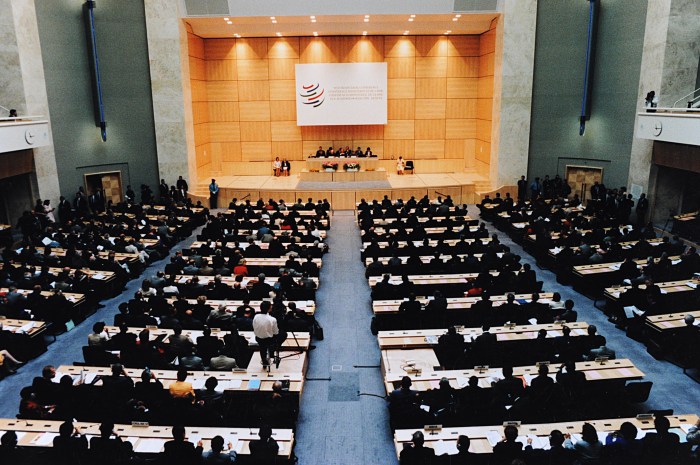
The World Trade Organization (WTO) and free trade are intricately linked, forming a symbiotic relationship that drives global economic growth and prosperity. The WTO acts as a crucial platform for promoting and facilitating free trade agreements, playing a vital role in shaping the global trade landscape.
The WTO’s Role in Promoting Free Trade Agreements
The WTO provides a framework for countries to negotiate and implement free trade agreements. This framework fosters a stable and predictable environment for international trade, reducing uncertainty and encouraging businesses to engage in cross-border transactions. The WTO’s core principles, such as non-discrimination, transparency, and reciprocity, underpin these agreements, ensuring fair and equitable treatment for all member countries.
The WTO facilitates the negotiation of trade agreements through various mechanisms, including:
- Multilateral Trade Negotiations:The WTO conducts rounds of negotiations, involving all member countries, to address key trade issues and establish new rules. These rounds have led to the reduction of tariffs, the removal of non-tariff barriers, and the harmonization of trade policies, resulting in increased trade flows.
- Preferential Trade Agreements (PTAs):The WTO encourages the formation of PTAs between countries, which involve preferential treatment for goods traded among participating members. These agreements can serve as building blocks for broader trade liberalization, fostering regional integration and economic growth.
- Technical Assistance and Capacity Building:The WTO provides technical assistance and capacity building programs to developing countries, helping them participate effectively in the global trading system. This support enables developing countries to implement trade policies, negotiate trade agreements, and benefit from the opportunities offered by free trade.
The WTO and free trade are often touted as solutions to global poverty, but the reality is more complex. While opening markets can stimulate economic growth, it’s crucial to remember that the causes of hunger are related to poverty , which can be exacerbated by unequal trade practices and a lack of social safety nets.
Ultimately, a balanced approach is needed, ensuring that free trade benefits all, not just the privileged few.
The WTO’s Dispute Settlement Mechanism
The WTO’s dispute settlement mechanism is a unique and essential feature that ensures the effective enforcement of trade rules. This mechanism provides a binding and impartial forum for resolving trade disputes between member countries. The dispute settlement process involves several stages:
- Consultations:The first step is for the parties involved to attempt to resolve the dispute through consultations.
- Panel Establishment:If consultations fail, a panel of experts is established to examine the case and issue a ruling.
- Appeals:The losing party can appeal the panel’s ruling to the WTO’s Appellate Body.
- Implementation:Once the dispute is settled, the losing party is obligated to implement the ruling.
The WTO’s dispute settlement mechanism is crucial for maintaining a stable and predictable trading system. It ensures that trade rules are enforced, preventing unilateral actions and promoting compliance with international obligations.
The Impact of WTO Agreements on the Global Trade Landscape, The wto and free trade
WTO agreements have had a profound impact on the global trade landscape, leading to significant changes in trade patterns and economic growth. The impact of WTO agreements can be seen in:
- Increased Trade Flows:The reduction of tariffs and non-tariff barriers has led to a significant increase in global trade flows, facilitating the exchange of goods and services across borders.
- Economic Growth:Increased trade has contributed to economic growth in both developed and developing countries, creating jobs, boosting productivity, and raising living standards.
- Competition and Innovation:The WTO’s rules promote competition, encouraging businesses to innovate and improve their products and services. This competition benefits consumers by offering them a wider choice of goods and services at lower prices.
- Poverty Reduction:Increased trade has played a role in reducing poverty, particularly in developing countries, by creating new opportunities for employment and economic growth.
The WTO’s rules and agreements have contributed to a more open and integrated global economy, fostering cooperation and promoting economic prosperity for all member countries.
Challenges to Free Trade
While free trade holds the promise of economic prosperity and global interconnectedness, it is not without its drawbacks. Critics argue that the benefits of free trade are often unequally distributed, leading to various social and economic challenges.
Job Displacement
The potential for job displacement is a significant concern associated with free trade. When countries lower trade barriers, domestic industries may face increased competition from cheaper imports. This can lead to job losses in sectors that are unable to compete effectively.
For example, the rise of outsourcing and offshoring to countries with lower labor costs has resulted in job losses in manufacturing sectors in developed economies.
Environmental Concerns
Free trade can also have negative environmental implications. The pursuit of lower production costs can incentivize companies to relocate to countries with weaker environmental regulations. This can lead to increased pollution, deforestation, and resource depletion. Furthermore, the increased transportation of goods across long distances contributes to greenhouse gas emissions.
Arguments Against the WTO’s Role in Promoting Free Trade
The World Trade Organization (WTO) plays a central role in facilitating free trade by setting rules and resolving trade disputes. However, critics argue that the WTO’s focus on free trade comes at the expense of other important considerations, such as environmental protection, labor rights, and public health.
- Lack of Transparency and Accountability: Critics argue that the WTO’s decision-making process lacks transparency and accountability, with powerful countries wielding disproportionate influence. This can lead to agreements that favor developed countries at the expense of developing countries.
- Trade Liberalization at the Expense of Environmental Protection: The WTO’s rules have been criticized for prioritizing trade liberalization over environmental protection. For example, the WTO’s rules on agricultural subsidies have been blamed for encouraging unsustainable farming practices and environmental degradation.
- Undermining Labor Standards: Some argue that the WTO’s rules on trade liberalization can undermine labor standards in developing countries. By encouraging countries to compete on the basis of low wages, the WTO can create a race to the bottom in terms of working conditions.
Challenges of Implementing Free Trade Agreements in Developing Countries
Implementing free trade agreements can be particularly challenging for developing countries. These countries often face structural constraints that limit their ability to compete effectively in the global market.
- Lack of Infrastructure: Developing countries often lack the necessary infrastructure, such as transportation networks and communication systems, to support trade. This can make it difficult for businesses in these countries to access global markets.
- Limited Access to Capital: Developing countries often face limited access to capital, which can make it difficult for businesses to invest in the technology and equipment needed to compete globally.
- Weak Institutions: Weak institutions, such as regulatory bodies and legal systems, can create an environment that is unfavorable to business development and trade.
The Future of the WTO and Free Trade
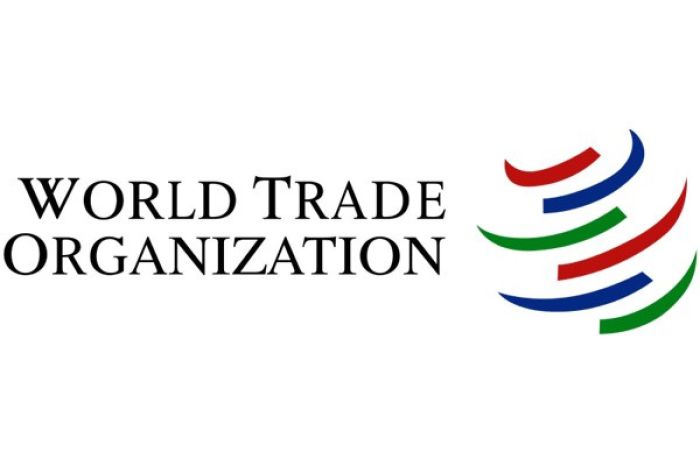
The World Trade Organization (WTO) and the principle of free trade are facing a complex and uncertain future. The global trade landscape is evolving rapidly, driven by technological advancements, geopolitical shifts, and changing consumer preferences. The WTO, established in 1995, has played a crucial role in shaping the global trading system, but it is now facing a number of challenges that threaten its effectiveness and relevance.
The Challenges Facing the WTO
The WTO is facing a number of challenges that threaten its ability to effectively manage global trade. These challenges include:
- Rising Protectionism:In recent years, there has been a rise in protectionist measures around the world. This trend is driven by a number of factors, including the belief that free trade has led to job losses in developed countries and the desire to protect domestic industries from foreign competition.
For example, the United States has imposed tariffs on goods imported from China, and the European Union has imposed tariffs on goods imported from the United States.
- Slowing Global Trade:Global trade growth has slowed in recent years, partly due to the rise of protectionism and the global economic slowdown. This trend has made it more difficult for the WTO to reach agreements on trade liberalization.
- The Rise of Regional Trade Agreements:The proliferation of regional trade agreements (RTAs) has made it more difficult for the WTO to manage global trade. RTAs can create trade barriers between countries that are not members of the agreement, and they can make it more difficult for the WTO to negotiate global trade agreements.
- The Digital Economy:The rapid growth of the digital economy has raised new challenges for the WTO. The WTO’s rules were designed for a world of physical goods, and they are not well-suited to regulate the digital economy. For example, the WTO has not yet developed rules on issues such as data flows and cross-border e-commerce.
- Climate Change:Climate change is a growing concern for the global economy, and it is also a challenge for the WTO. The WTO’s rules are not well-suited to address the environmental impacts of trade, and they do not provide a framework for countries to cooperate on climate change mitigation.
Potential Future Directions for the WTO
The WTO needs to adapt to the changing global trade landscape in order to remain relevant. Some potential future directions for the WTO include:
- Focus on Trade Facilitation:The WTO can focus on reducing trade barriers and simplifying trade procedures. This would help to boost global trade and economic growth.
- Address the Digital Economy:The WTO needs to develop rules to regulate the digital economy. This would help to ensure that the digital economy benefits all countries and that it is not used to undermine competition or consumer protection.
- Promote Sustainable Trade:The WTO can promote sustainable trade practices that protect the environment and promote social responsibility. This would help to ensure that trade benefits all countries and that it does not have negative environmental or social impacts.
- Strengthen Dispute Settlement:The WTO’s dispute settlement system is essential for ensuring that countries comply with their trade obligations. The WTO should work to strengthen the dispute settlement system and make it more effective.
The Evolving Role of Free Trade in the 21st Century
Free trade has been a major driver of economic growth and prosperity in the 20th century. However, free trade is facing a number of challenges in the 21st century, including the rise of protectionism, the digital economy, and climate change.
In the 21st century, free trade will need to be more inclusive and sustainable. This means that it needs to be designed to benefit all countries and to protect the environment and promote social responsibility.

